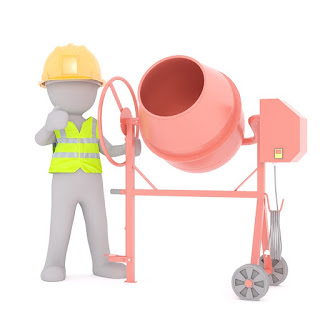How to Plan for Retirement a guide for Civil Engineer
When it comes to retirement, your money is what secures your future. Financial security does not occur overnight, but you do not need to be intimidated. With proper planning and responsible commitment, you can create and stick to a budget that will give you what you need after you retire. Despite this, most Americans have never even calculated how much money they need to saveto sustain themselves after retirement. Even more alarming is that a significant number of people are failing to contribute to a defined retirement plan. Planning for retirement does not have to be an intimidating and frustrating experience. In fact, putting aside money now will save you time and energy in the future. Here is a quick guide on how you can plan for your retirement.
Start Saving Now
There is simply no better time than the present to save. If you have already been saving for years, then you may be on the right track. However, if you have not been saving, it is best advised that you start right away. Saving is, by virtue, a rewarding habit. By putting off some spending now, you are able to save for much bigger ventures. Start by cutting some unnecessary expenditures, or simply by limiting your monthly spending budget. If you already have a strict monthly budget, then try to divert a small portion of your savings into a retirement account. Simply by making your retirement a priority, contributing every month will become second nature and you will be rewarded in the long run.
Invest in Your Employer’s Retirement Saving’s Plan
Many employers offer a 401(k) or equivalent retirement plan. If this is available to you, then by all means, invest. Employer retirement plans have many advantages, namely that your retirement will be automatically deducted from your paycheck without your needing to physically do it yourself. You also fetch a hefty tax break every year for contributing to a 401(k) plan. By contributing to a plan, your tax deferrals and compound interest will make a huge difference in the amount of money you accumulate by the time of retirement. Research your plan by asking your employer questions about how much you need to contribute to gain a certain amount of money. Keep in mind that these plans allow you to adjust the amount you contribute each year depending on your financial situation. For example, if you are about to send a child off to college, you can change the amount you contribute to make up for the cost. If, however, you are making much more money that year, you may want to take advantage by contributing more.
Learn About Your Pension Plan
When you become employed, you should ask your employer about whether they have a pension plan. Sit with a representative from your employer’s human resources department so they can educate you on how the plan works, whether you are covered, and what would happen should you leave the job.
Do Not Take Money Out of Your Retirement Plan
The best way to treat your retirement plan is to not take money out. Once you begin to take money out of your retirement plan, you will start to lose tax benefits and precious principal interest that accrues over time. Be sure that if you change jobs, investigate whether it is more advantageous to keep your current savings or create an IRA under your new employer.
Invest in an IRA
There are two different types of IRA’s—either a traditional or Roth IRA. Depending on which plan you choose, your tax breaks and contribution amount will change.
Know How Much Retirement Savings You Need
Retirement is more expensive than ever. When you stop working, all of the money you earn goes toward your future. Therefore, you do not want to go spending right away. What’s more, people are living much longer than they did before retirement plans were first administered, therefore you will need to consider the type of life you want to live before you begin spending. Not only do you want to go on big retirement trips or maintain your lifestyle, but you likely will want to invest in other insurance policies that will help you and your family as you get older, such as supplemental medical insurance. In addition, burial insurance can protect your family and future. Death isn’t something we like to think about, but it’s an important thing to plan for to ensure your loved ones aren’t saddled with impossible bills after your eventual passing.
As you plan your retirement, make sure to touch on each of these facets and strategies to ensure financially secure Golden Years.














